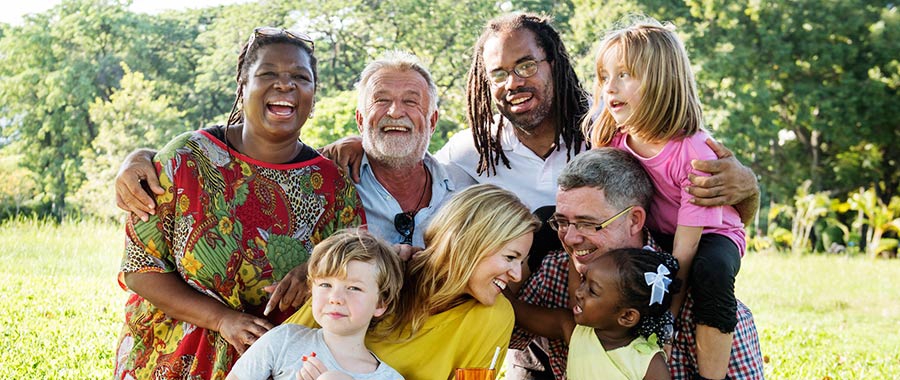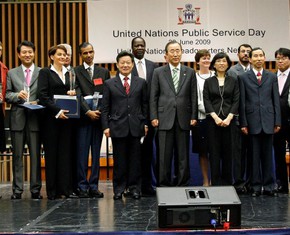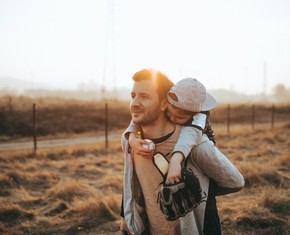The views expressed in our content reflect individual perspectives and do not represent the authoritative views of the Baha'i Faith.
Mine was a typical southern African-American family in the mid-1960s when my parents learned about the Baha’i Faith.
My parents were hard-working young people from modest means, determined to establish themselves economically and to break free from the strictures of the segregated world in which they grew up. My father was in the military and my mother was a first-generation college graduate. Our family was steeped in the traditions of Southern Baptist Church—a faith that expressed itself in an outward-oriented evangelical engagement with the world, as well as an attentiveness to inner spiritual development fed by regular church attendance.
Except for work, the world of my parents was almost entirely segregated from white Americans. They had no white friends, no white neighbors, and painfully few positive interactions with white people. Apart from the occasional salesman, no white person had ever been in their homes when they were young, and they had never been invited to dinner or any other occasion at the home of a white person. That all changed when they began to explore the teachings of the Baha’i Faith and participate in Baha’i activities—which were not only integrated, but which encouraged close association among people of every race:
… this intermingling of the peoples of the world is vital to the patterns of life that the followers of Baha’u’llah are striving to establish and which are destined to provide an example for the rest of humanity to emulate. As the Baha’i community continues to grow in capacity, it should give increasing attention to bringing together the diverse members of the human race in ever closer association. – The Universal House of Justice, January 2002, p. 2.
Early in their exploration of Baha’i teachings, while living for a time in the Pennsylvania, my parents met a young white couple with two children, who were themselves relatively new Baha’is. This family came from the all-white enclaves of New England where they had very little interaction with African-Americans—no school friendships, no African-American neighbors or dinner guests, no African-American teachers or church members to integrate their all-white Protestant religious experiences. They were hard-working people, too, not rich, but with some inter-generational wealth in the family and a history of educational attainment and social progress.
Our two families, one a typical Southern African-American family and the other a typical white family from New England, were both young, idealistic, spiritually seeking, yet socially worlds apart. They were American families of the same generation, but leading very different lives which were unlikely to intersect in meaningful and positive ways in the economically stratified and socially segregated climate of the time.
When the two families met, each was exploring and deepening its understandings of Baha’u’llah’s teachings, such as the:
- Inherent nobility and spiritual nature of humanity
- Equality of women and men
- Importance of universal access to education for all children
- Necessity of eliminating of all forms of prejudices, and
- Progressive nature of divine revelation and the connection among the world’s great religions
My parents, similar to the white family, embraced the teachings of Baha’u’llah as a path to spiritual growth and social transformation. The Baha’i teachings on racial unity also provided our families a bridge to interracial interaction, to trust, and eventually to a deep and lasting friendship which has now spanned more than 50 years. Those teachings enabled the members of our two families to look beyond the barriers of race and culture to see each other’s humanity, to see themselves as members of one human family, overcoming generations of separation by law and custom, racial distrust, and cultural difference.
With the encouragement our Northern family friends who moved to South Carolina in the late 1960s, my family moved back to the South to join them, participate in community building activities and promote racial unity. There in South Carolina, then a place still steeped in racial separation, my African-American family and a white family prayed together, prepared and ate meals together, traveled together, cared for each other’s children, helped build a private school together which was open to people of all races and economic backgrounds, and worked to build self-sustaining communities which were racially integrated and unified—all inspired by the Baha’i teachings of equality and the oneness of humanity.
Needless to say, blacks and whites working together as we did at that time in the Deep South was not the norm. It was, however, the norm for Baha’is, motivated by teachings reflecting the spirit of close association between the races and an uncompromising application of the ideal of freedom from racial prejudice:
God maketh no distinction between the white and the black. If the hearts are pure both are acceptable unto Him. God is no respecter of persons on account of either color or race. All colors are acceptable to Him, be they white, black, or yellow. Inasmuch as all were created in the image of God, we must bring ourselves to realize that all embody divine possibilities… God did not make these divisions. These divisions have had their origin in man himself. Therefore, as they are against the plan and purpose of reality, they are false and imaginary. – Abdu’l-Baha, quoted by Shoghi Effendi in The Advent of Divine Justice, p. 31.
In the experience of my family and our closest friends, a white family from New England, there is both evidence and a model for the application of Baha’u’llah’s teachings to transform people and communities formerly separated by the artifice of race and culture, and to put such love into their hearts that they would not only unite, but come to view each other as brothers and sisters from one loving Creator.
How, exactly, was the bond between the two families nurtured and cemented? What is the model? We studied and worshiped together, we regularly shared meals at each other’s homes, we shared our hopes and disappointments, and the children spent time together in each other’s homes. Our families worked together with others to assess and address the needs of our community. Above all, our two families were intentional about building unity as a means of advancing our community and families. The result was the development of deep bonds of affection and unified spiritual growth, not only for the two families, but among a wide circle of friends and acquaintances.
















Comments
Sign in or create an account
Continue with Googleor